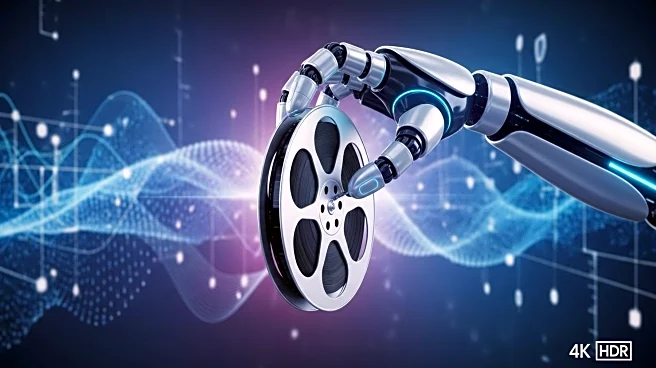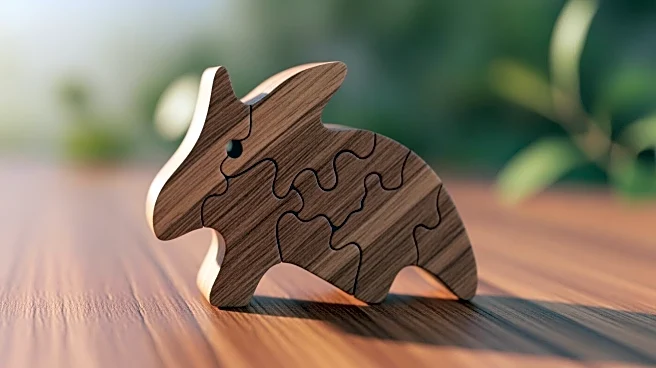What's Happening?
OpenAI, in collaboration with Vertigo Films, is developing a feature-length film titled 'Critterz', based on a 2023 short film that utilized OpenAI's Dall-E image generator. The project aims to demonstrate the capabilities of generative AI in film production, with a budget under $30 million and a planned release at the Cannes Film Festival next May. The film will expand on the original short's concept, featuring animated creatures in a nature documentary style. The production involves feeding sketches from human artists into AI tools to create animations, showcasing a blend of traditional and AI-driven techniques. The film's script is being written by James Lamont and Jon Foster, known for their work on 'Paddington in Peru'.
Why It's Important?
The development of 'Critterz' represents a significant step in integrating AI into the creative process of filmmaking. By using AI to animate and produce a feature-length film, OpenAI and its partners are exploring new production workflows that could reduce costs and timeframes in the film industry. This project also raises important questions about the role of AI in creative fields, including issues of copyright and the potential impact on traditional animation jobs. As AI tools become more sophisticated, they could transform how films are made, potentially democratizing access to filmmaking resources and enabling new forms of storytelling.
Beyond the Headlines
The use of AI in film production is controversial, with concerns about the ethical implications of replacing human creativity with machine-generated content. The project also highlights ongoing legal challenges faced by AI companies regarding the use of copyrighted materials in training datasets. As AI-generated content becomes more prevalent, the industry will need to address these issues to ensure fair compensation and recognition for human creators. Additionally, the reception of 'Critterz' by audiences and critics will be a key indicator of public acceptance of AI-driven films.








